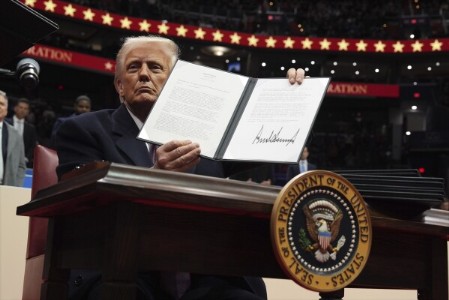Kharkiv left completely without electricity after the Russian attack
On Friday evening, Oleg Synegubov, head of Kharkiv"s regional administration, said electricity supplies had been restored to 55 percent of city residents and 85 percent of those living in the northeastern region.
Total Views | 143
Kharkiv, Dec 17: In the wake of the latest wave of Russian missile strikes that targeted Ukrainian energy infrastructure, the war-torn nation's second-biggest city of Kharkiv was left without electricity for hours. According to local officials, the BBC reports that at least nine power facilities were hit as Russian forces fired 76 missiles and carried out drone attacks on Friday.
On Friday evening, Oleg Synegubov, head of Kharkiv's regional administration, said electricity supplies had been restored to 55 percent of city residents and 85 percent of those living in the northeastern region.
He added that energy sector employees were working to restore full power by midnight. However, Ukraine's power grid operator, Ukrenergo, warned that the scale of the damage could mean it will take longer to restore supplies. The body said in a statement that the energy system had lost more than half of its capacity because of the latest strikes, adding that priority would be given to "critical infrastructure -- hospitals, water supply facilities, heat supply facilities, sewage treatment plants". Defence Ministry adviser Yuriy Sak told the BBC that emergency services were working to restore electricity supplies, but the situation was "still difficult". Friday's missile strikes also killed three people and injured 13 others when a residential building was hit in Kryvyi Rih, while Kherson also reported one fatality. The BBC reported that the capital city's metro services were stopped in Kyiv. Ukraine's Commander-in-Chief General Valeriy Zaluzhny said air defences had intercepted 60 of the 76 missiles fired, most of them cruise missiles.
Kyiv city officials said about 40 missiles had been fired at the capital alone -- one of the highest numbers since Russia launched its invasion of Ukraine on February 24. Thirty-seven were brought down by air defences, the officials added. Friday's strikes also cut power in the north-eastern Sumy region that borders Russia, and also in the central cities of Poltava and Kremenchuk. Fifteen rockets were reportedly fired at Zaporizhzhia in the south. Russia has launched more than 1,000 missiles and Iranian-made attack drones since the wave of strikes began on October 10, although most of them have been intercepted by air defences. The biggest barrage, in mid-November, involved more than 100 missiles and drones.
Bharati Web
Mes, Pune






